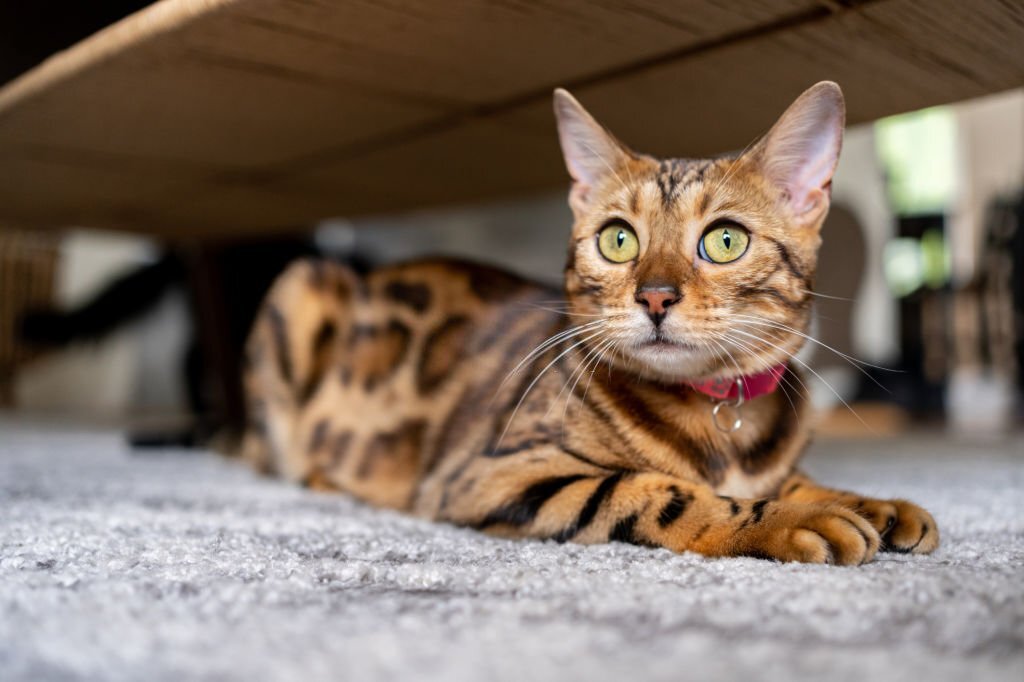Introduction to Bengal Cats
Bengal cats are a unique and beautiful breed that have become increasingly popular in recent years. They were first developed in the 1960s by breeding an Asian leopard cat with a domestic cat, resulting in a hybrid that has the wild appearance of a leopard but the temperament of a domestic cat. Bengal cats are known for their distinctive coat patterns, which can range from brown and black to silver and charcoal. They are also highly intelligent and active, making them a popular choice for families and individuals who are looking for a lively and engaging pet.

Factors Affecting Bengal Cat Lifespan
The lifespan of a Bengal cat can be influenced by a variety of factors, including genetics, breed-specific health issues, and environmental factors such as diet, exercise, and veterinary care. Genetics play a significant role in determining a cat’s lifespan, and Bengal cats may be prone to certain health issues that can impact their longevity. However, there are also many steps that owners can take to help their Bengal cats live long and healthy lives.
Average Lifespan of Bengal Cats
The average lifespan of a Bengal cat is around 12-16 years, which is similar to that of many other domestic cat breeds. However, with proper care and attention, some Bengal cats have been known to live into their late teens or even early twenties. Factors that can extend or shorten a Bengal cat’s lifespan include genetics, diet, exercise, and preventative veterinary care.
Bengal Cat Health Issues and Their Impact on Lifespan
Like all cats, Bengal cats can be prone to certain health issues that can impact their lifespan. Some of the most common health issues in Bengal cats include dental problems, heart disease, and gastrointestinal issues. However, many of these health issues can be prevented or managed with proper care and attention. Regular veterinary check-ups, a healthy diet, and plenty of exercise can all help to keep Bengal cats healthy and happy.
Importance of Proper Nutrition for Bengal Cats
Proper nutrition is essential for the health and wellbeing of all cats, and Bengal cats are no exception. These cats require a diet that is high in protein and low in carbohydrates, as well as plenty of fresh water. Owners should choose a high-quality cat food that is specifically formulated for Bengal cats, and avoid feeding their cats table scraps or other human foods that can be harmful to their health.
Bengal Cat Exercise and Its Role in Longevity
Bengal cats are highly active and energetic, and require plenty of exercise to stay healthy and happy. Owners should provide their cats with plenty of opportunities to play and explore, and should also consider providing them with toys and other forms of mental stimulation. Regular exercise can help to prevent obesity, which is a common health issue in cats and can shorten their lifespan.
Regular Veterinary Check-Ups for Bengal Cats
Regular veterinary check-ups are an essential part of caring for any cat, and Bengal cats are no exception. Owners should schedule annual check-ups for their cats, and should also take their cats to the vet if they notice any signs of illness or injury. During a veterinary visit, the vet will perform a physical exam, check for any underlying health issues, and provide preventative care such as vaccinations and parasite control.
Tips for Extending the Lifespan of Your Bengal Cat
There are many steps that owners can take to help their Bengal cats live long and healthy lives. Some of the best practices for caring for Bengal cats include providing them with a healthy diet, plenty of exercise and mental stimulation, regular veterinary check-ups, and lots of love and attention. Owners should also be aware of the signs of aging in their cats, and should provide extra care and support as their cats enter their senior years.
Understanding the Signs of Aging in Bengal Cats
As Bengal cats age, they may experience a variety of physical and behavioral changes that can impact their quality of life. Some of the most common signs of aging in cats include decreased mobility, changes in appetite and digestion, and changes in behavior and temperament. Owners should be aware of these changes and should provide their cats with extra care and support as they age.
Coping with the Loss of a Bengal Cat: Grief and Support Resources
Losing a beloved pet can be a difficult and emotional experience, and it is important for owners to have access to support and resources during this time. There are many grief and support resources available for pet owners, including online forums, support groups, and counseling services. Owners should also take time to remember and celebrate the life of their Bengal cat, and to cherish the memories that they shared together.
Conclusion:
Bengal cats are a unique and beautiful breed that can make wonderful pets for families and individuals. While their lifespan can be influenced by a variety of factors, there are many steps that owners can take to help their cats live long and healthy lives. By providing their cats with a healthy diet, plenty of exercise and mental stimulation, regular veterinary care, and lots of love and attention, owners can help their Bengal cats to thrive and enjoy a happy and fulfilling life.
